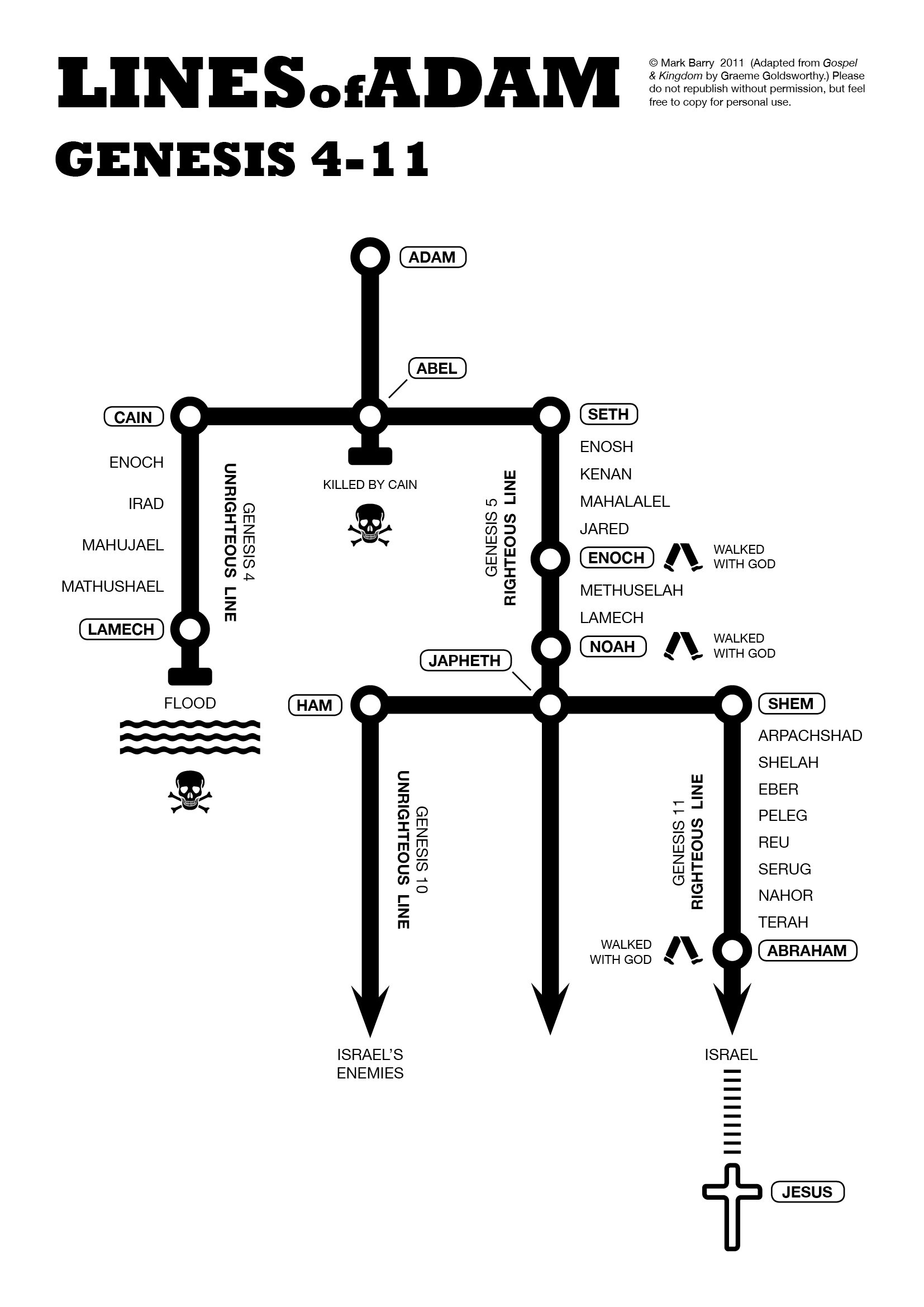I’ve recently started studying the first five books of the Bible in more depth. Almost as soon as I started, I had an “Oh, I never knew that!” moment which is the subject of today’s post.

The opening books of the Bible are known by the Greek word “Pentateuch”, which literally means “five volumes”. Unsurprisingly, there are five books which make up the Pentateuch:
1. Genesis
In Greek, “Genesis” means “Beginning”, which is an appropriate title for this book since it describes the Creation of all things. It also covers the lives of the early Patriarchs, up until the time of Jacob and the Twelve Tribes.
2. Exodus
The second book of the Bible describes the escape of the Children of Israel from Egypt and the giving of the Ten Commandments on Sinai. This is reflected in the book’s title, which literally means “Departure”.
3. Leviticus
If you’ve ever tried to read Leviticus, you’ll know that it goes into great detail concerning all the different sacrifices in the cultic worship of Israel. This worship was performed in the Temple by the priestly tribe of the Levites, which gave rise to the this volume’s title, “Book of the Levites”.
4. Numbers
This book recounts the events of Israel’s sojourn in the desert. Unlike the other volumes in the Pentateuch, its title is not very descriptive, being so named because the opening pages of the book concern a census that was taken among the people.
5. Deuteronomy
The final volume in the Pentateuch contains the Law given by Moses on the plains of Moab prior to his death and before the entry into the Promised Land.
My first “Oh, I didn’t know that!” moment was when I found out the meaning of this book’s title. The Greek word for “Law” is “nomos” and it’s the word used throughout the New Testament to refer to the Law of Moses. You can see this Greek word hidden away in the name of the book: “Deuteronomy“. The prefix, “deutero” means “second” (e.g. “deuterocanon” means “second canon”). Therefore, “Deuteronomy” means “Second Law”. It is so called because it’s the second major piece of legislative material in the Books of Moses.
I previously knew that the Jewish people often refer to the Pentateuch as “The Torah”, the Hebrew word for “Instruction”, “Teaching”, or “Law”. However, what I didn’t know was that the they have different names for each of these books. The names which I listed above (Genesis, Exodus, …) come from the Septuagint (LXX), the Greek translation of the Pentateuch sometime around 250 BC. Within Judaism, however, the following Hebrew names are used:
1. Bereshith (“In the Beginning”)
2. Shemuoth (“Names”)
3. Wayiqra (“And he said”)
4. Bamidbar (“In the desert”)
5. Debarim (“Words”)
As you might be able to guess from the translations in parentheses, the Jews follow the same naming convention used in Catholic Papal Encyclicals, naming the book after the opening words of the document.
Well, that’s enough nerding out for one day… 

 I am currently in the middle of
I am currently in the middle of 



